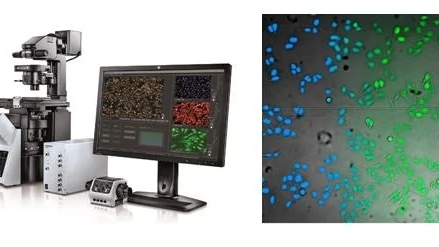
Olympus Corporation, a global leader in imaging, optics, and medical technologies, has long been synonymous with precision and innovation. In recent years, the company has introduced a transformative concept known as “Olympus Scalation.” While not yet a widely recognized term, Olympus Scalation encapsulates the company’s commitment to advancing
At its core, Olympus Scalation represents a strategic approach to scaling imaging solutions—ranging from consumer cameras to medical and scientific instruments. This initiative focuses on pushing the boundaries of image quality, functionality, and accessibility, ensuring that Olympus products meet the evolving demands of modern users. By integrating advanced optics, intelligent software, and user-centric design,
What is Olympus ?
Olympus is a concept that centers on the adaptive, scalable nature of Olympus’ technological solutions. The company’s products, from their high-definition cameras and microscopes to medical instruments, have evolved to offer not only superior performance but also the flexibility to meet diverse, growing needs. Scalation refers to the ability to scale up or down the functionality of these products based on specific user needs
The Need for Scalability in Modern Technology
As technology evolves, the demand for flexible and scalable solutions grows. Olympus recognized this need early on and integrated scalability into its product design. This ensures that their products can evolve with the user, adapting to new requirements without the need
The Role of Olympus in Healthcare
Olympus has long been a leader in the healthcay in endoscopy and medical imaging. The emergence of Olympus in healthcare technologies has played a crucial role in enhancing diagnostic and therapeutic procedures. Scalation allows medical professionals to scale their tools to suit different types of surgeries, diagnostics,

or patient needs. For example, the flexibility of Olympus endoscopic systems means that they can be adapted for use in various medical fields, from gastroenterology to pulmonology, improving both efficiency and
Customizing Medical Tools for Patient Needs
With Olympus , healthcare providers can tailor their tools to suit a diverse range of medical conditions, enhancing the precision of diagnoses and the effectiveness of treatments. This scalability ultimately leads to improved patient outcomes and greater operational efficiency in medical practices.
Enhancing Research with Olympus
In the realm of scientific research, precision and scalability are paramount. Researchers need equipment that can offer high-resolution imaging and data capture without the limitations of traditional technology. Olympus plays a significant role here by providing versatile tools that can scale in terms of magnification, resolution, and functionality. For instance, Olympus microscopes equipped with scalable features can be used for everything from basic cell imaging to complex molecular studies.
Maximizing Research Potential with Scalable Solutions
Olympus’ scalable tools enable researchers to conduct a wide range of experiments and observations, all within a single platform. The ability to adjust settings for different research applications not only simplifies the research process but also makes it more cost-effective, as researchers do not need to invest in multiple specialized tools.
Olympus in Professional Photography
Photography, especially in fields like journalism, nature, and commercial photography, requires equipment that can adapt to a variety of environments and shooting conditions. Olympus has long been known for producing high-quality cameras and lenses, and the concept of scalability has only furthered its impact in the photography world. Olympus cameras, equipped with advanced sensors, interchangeable lenses, and customizable settings, allow photographers to scale their gear for different shooting conditions, from macro photography to wide-angle landscape shots.
Adapting Photography Gear to Various Needs
Olympus in photography means that users can adapt their cameras to different needs and environments, providing greater flexibility and enhancing creativity. Photographers can scale the performance of their equipment depending on the subject matter, lighting conditions, and the level of detail required.
Scalation and Olympus’ Innovation in Imaging Technology
Olympus’ innovations in imaging technologies are deeply tied to the scalability of their products. Whether it’s their mirrorless cameras or their revolutionary medical imaging systems, Olympus’ ability to scale performance based on user needs is one of the key factors driving their success.

For instance, Olympus imaging systems can be scaled in terms of resolution and sensitivity to capture high-quality images under a wide range of lighting conditions, enhancing the user experience in both professional and scientific environments.
Intelligent Software Integration for Enhanced Imaging
Olympus also integrates intelligent software solutions that work in tandem with their imaging devices. The software, often customizable to suit the needs of the user, allows for more intricate analysis, further pushing the limits of what Olympus products can achieve.
The Benefits of in Olympus’ Business Strategy
For Olympus, scalability is not just a product feature; it is a core part of the company’s broader business strategy. The ability to offer scalable solutions means that Olympus can serve a diverse range of industries, from healthcare to photography and research. It allows the company to meet the needs of both small-scale and large-scale operations, creating a larger potential customer base.
A Flexible Business Model for Expanding Markets
Furthermore, Olympus enables the company to respond more effectively to changing market demands. As industries evolve and new challenges emerge, Olympus can quickly adapt its products and services, offering customers the flexibility they need to succeed in dynamic environments. This scalability ensures that Olympus remains at the forefront of technological innovation and continues to provide solutions that meet the needs of users across different fields.
Olympus and Sustainability
Sustainability is a growing concern in the technology industry, and Olympus is no exception. Scalability in Olympus products also contributes to sustainability efforts. By offering equipment that can be adapted and upgraded over time, Olympus reduces the need for customers to purchase new devices constantly. This not only helps businesses save money but also reduces electronic waste, aligning with global efforts to create a more sustainable future.
| Aspect | Olympus’ Sustainability Initiatives |
|---|---|
| Company Overview | Olympus is a global leader in precision technology, known for its products in the fields of imaging, medical systems, and scientific instruments. It is committed to environmental and social responsibility. |
| Sustainability Vision | Olympus aims to be a company that contributes to society by promoting sustainability in all areas, focusing on reducing environmental impact and enhancing the quality of life. |
| Environmental Goals | 1. Reduce CO2 emissions through energy-efficient products and operations. 2. Use renewable energy in manufacturing and other facilities. 3. Promote recycling and reduce waste. |
| Sustainable Products | 1. Development of eco-friendly medical equipment that helps in reducing environmental impact. 2. Energy-efficient imaging products. 3. Adoption of sustainable materials in products. |
| Circular Economy Practices | Olympus implements a circular approach, focusing on product longevity, repairability, and recycling to minimize e-waste and resource depletion. |
| Social Responsibility | 1. Support education, healthcare, and environmental conservation projects. 2. Engage in global initiatives promoting public health and well-being. |
| Sustainable Supply Chain | Olympus ensures its suppliers adhere to sustainability guidelines, promoting ethical labor practices, responsible sourcing, and reducing the overall carbon footprint. |
| Reporting and Transparency | Regular sustainability reports disclose the company’s environmental impact, goals, and progress. Olympus aligns its practices with international sustainability standards. |
| Awards and Recognition | Olympus has received several sustainability awards for its innovation in reducing carbon emissions, waste reduction, and commitment to eco-friendly technologies. |
Reducing E-Waste and Promoting Sustainable Practices
The company’s emphasis on scalability also extends to its manufacturing processes, where they aim to reduce the environmental impact of their production. By creating versatile products that can be easily modified or upgraded, Olympus helps reduce the overall resource consumption associated with producing new technology.
How Olympus is Shaping Future Technologies
The future of technology lies in adaptability and flexibility, and Olympus is at the forefront of this transformation. As industries continue to evolve, Olympus will likely expand its scalability offerings, developing new solutions that can meet the increasingly complex demands of users. Future developments might include even more advanced imaging systems, endoscopic tools with higher customization options, and cameras with groundbreaking new features that provide greater user control.
Integration with Emerging Technologies
Moreover, Olympus’ commitment to integration with emerging technologies like artificial intelligence and machine learning could further enhance the scalability of their products, offering even more personalized and dynamic experiences for users in various sectors.
The Competitive Edge of Olympus
Olympus gives the company a competitive edge in several markets. By focusing on scalability, Olympus ensures that its products can adapt to the evolving needs of its customers, allowing them to stay relevant in an ever-changing technological landscape. This flexibility makes Olympus products attractive not only to individuals but also to businesses and organizations that require highly specialized, versatile solutions.
Maintaining Leadership in a Competitive Market
The ability to scale products in terms of functionality, performance, and customization ensures that Olympus can continue to compete effectively against other technology giants in fields such as imaging, healthcare, and scientific research.
Conclusion
Olympus represents a significant leap forward in the adaptability and versatility of Olympus products. Whether in healthcare, research, or photography, this concept has allowed Olympus to develop technologies that meet the diverse needs of modern professionals. By providing scalable solutions that offer both flexibility and precision, Olympus continues to push the boundaries of what’s possible in the tech industry.
FAQs Related to Olympus Scalation
- What is the concept of Olympus ? Olympus Scalation refers to the scalability and adaptability of Olympus products, allowing users to adjust functionality based on their specific needs across various industries.
- How does Olympus benefit the healthcare industry? Olympus Sclation allows medical professionals to customize their equipment for different procedures, ensuring better diagnostics and treatment outcomes.
- Can Olympus Scalation be applied to research equipment? Yes, Olympus microscopes and imaging systems are highly scalable, enabling researchers to adjust settings for a wide range of scientific applications.
- What industries benefit from Olympus technology? Olympus Scalation benefits industries like healthcare, scientific research, and professional photography by providing adaptable and high-performance tools.
- How does Olympus contribute to sustainability? Scalability reduces the need for constant upgrades, lowering electronic waste and promoting more sustainable practices in the tech industry.
Also Read This: Exploring Etherions.com etherions.com/






